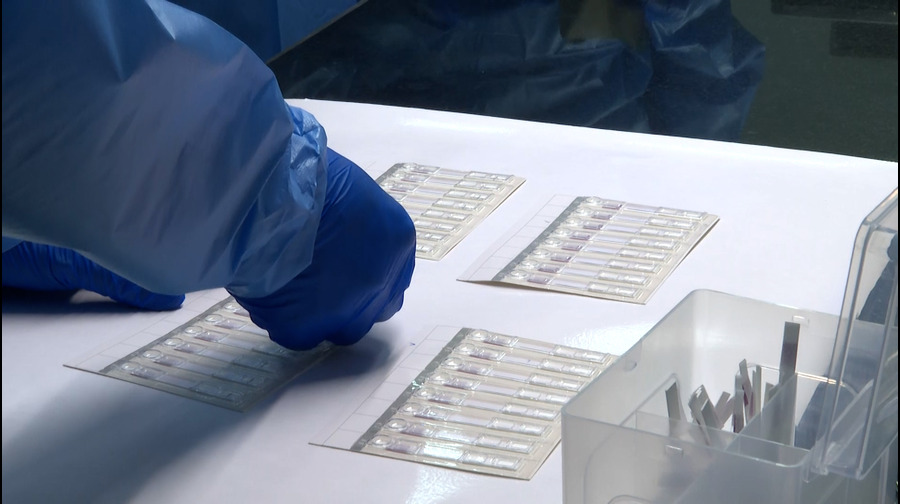
Bhutan is on the verge of manufacturing its own test kits to detect Helicobacter pylori or H.pylori through stool samples. H.pylori is a bacterial infection and leading cause of stomach cancer. With financial support of nearly Nu 300 M from the Japan International Cooperation Agency, JICA, equipment has been installed at the Royal Centre for Disease Control.
The process involves assembly of strips. These strips are imported from India, Taiwan and Indonesia. Two Bhutanese were trained in Japan for the job. Today, four staff of the centre know how to assemble the materials to make strips. These strips will be used to test for H.pylori through stool samples.
Takashi Matsumoto (PhD), an assistant professor at Oita University in Japan said, “The assembled kits will be sent for validation by a Japanese company. The quality came very good. So we are aiming to continue the production and with higher quality as a next step.”
The test kits will be sent to Japan in January. This is part of JICA’s project for institutional capacity building for eliminating H.pylori related deaths.
Today, people can test their stool, breath, blood or reluctantly undergo endoscopy for H.pylori detection.
Passang Lhamo, PhD Student at Oita University said, “Due to time constraint we have conducted the study only within Thimphu. We have covered 1508 adults in the survey so far. Excluding pregnant women, infants and those under medication of other diseases, the positive rate was around 300.”
Dr G.P. Dhakal, a gastroenterologist at JDWNRH said, “Initially, when a patient was detected of stomach cancer, gastrectomy needs to be conducted which involves the opening of the stomach to remove the part with cancer. However, with the return of a doctor who is undergoing training in Japan currently, the initial procedure need not be followed as an advanced training using a pipe is underway. They are also supporting us with a research on the early detection and treatment of H.pylori which is a cause of stomach cancer.”
Kazuo Kikuchi (PhD), who is an assistant professor at Showa University Hospital in Japan said, “Currently H.pylori infection in Bhutan is detected at a later stage. There is a need of more training for the health workers to be skilled for its early detection. It is also important to do screenings and follow necessary treatments.”
In Bhutan, stomach cancer is the most common type of cancer among men, with about 17 cases for every 100,000 people. Among women, it is the second most common cancer.
Once the quality of the strips is double-checked in Japan and hopefully, gets a green signal, Bhutan will produce one of the cheapest kits replacing the expensive imported ones.
Kelzang Chhophyel/Namgay Wangdi
Edited by Tandin Phuntsho









